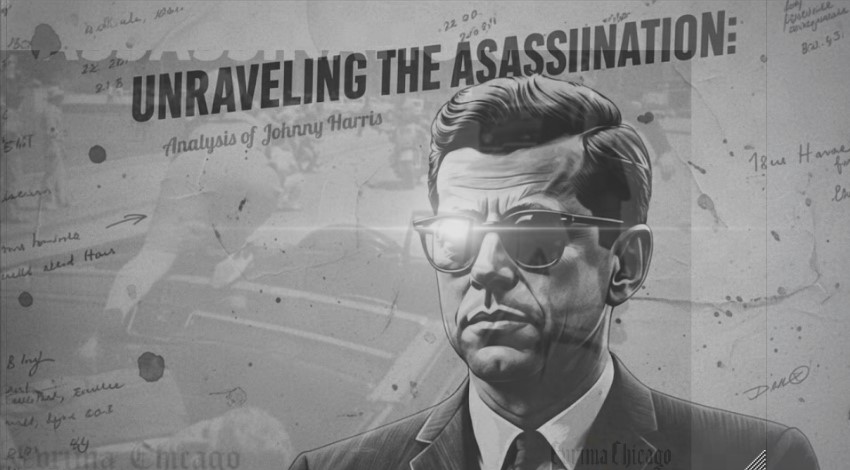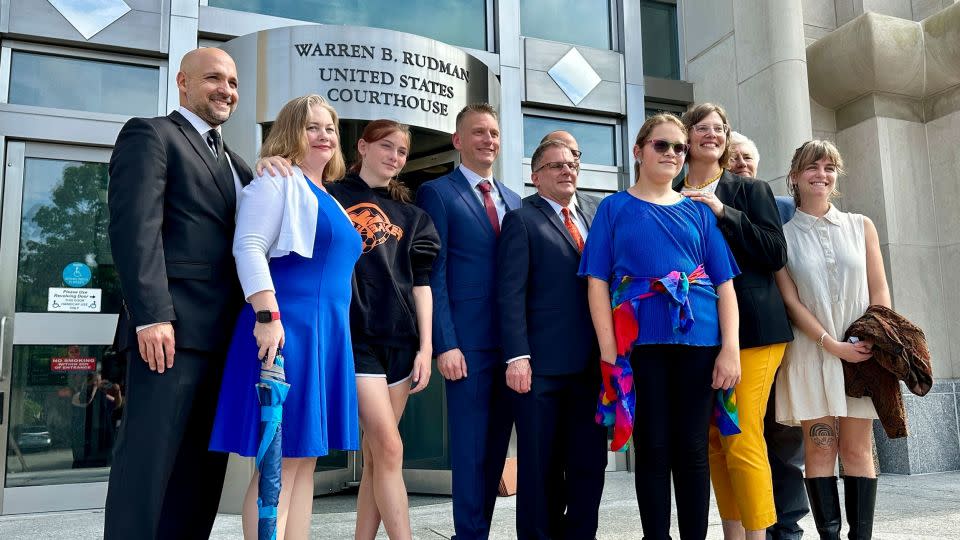Although Utah County Attorney Jeff Gray announced he is seeking the death penalty against Tyler Robinson, the man accused of assisinating conservative activist Charlie Kirk, achieving that sentence could be a tall order in a state that has only executed one person in the past 15 years.
The decision transforms a case that could have been smooth sailing for prosecutors, assuming the plethora of physical evidence, witness testimony and alleged confessions they have described to the media holds up in court.
Now, the case isn't only about proving guilt: Government lawyers will need to convince every member of a 12-person Utah jury that the death penalty matches both the crime and the alleged criminal.
"It's far from guaranteed," Neama Rahmani, a former federal prosecutor, told USA TODAY. "You've got to get 12 out of 12. It has to be unanimous. If there's any sort of sympathies or any just hesitation, that's going to be enough."
Charlie Kirk murder suspect appears in court, prosecutors seek death penalty
Media set up outside the Fourth Judicial District Courthouse where Tyler Robinson appeared remotely for arraignment on Sept. 16, 2025, in Provo, Utah. Tyler Robinson is accused of fatally shooting Charlie Kirk, CEO and co-founder of Turning Point USA, while he was speaking at an event for his "American Comeback Tour" on the campus of Utah Valley University.
Under Utah law, a jury considering whether to sentence a defendant to death has to weigh what are called "aggravating" and "mitigating" circumstances. Aggravating circumstances are basically features of the alleged crime and perpetrator that justify greater punishment. Mitigating circumstances refer to features of the crime or perpetrator that complicate the moral picture.
The jury needs to conclude beyond a reasonable doubt that the aggravating circumstances outweigh the mitigating factors, and additionally that the death sentence is "justified and appropriate."
Assuming even one juror doesn't come to that conclusion, the jury will then consider whether a life sentence without the possibility of parole is appropriate. If prosecutors can't get at least 10 of the 12 jurors to agree on that sentence, the judge will determine a sentence ranging from 25 years to life behind bars.
If 22-year-old Robinson is convicted and sentenced to death, he wouldn't be the first young man in a prominent case to face that fate in recent years. A federal jury handed down that sentence to Dzhokhar Tsarnaev for his role as one of two attackers behind the 2013 Boston Marathon bombings, committed when Tsarnaev was 19 years old.
But other prominent cases involving gruesome crimes and young defendants have seen a different outcome.
Utah County Attorney General Jeff Gray speaks during a press conference regarding Charlie Kirk shooting suspect Tyler Robinson on September 16, 2025 at the Utah County Health & Justice Building in Provo, Utah.
Nikolas Cruz, who murdered 17 people in 2018 at a Parkland, Florida, high school when he was 19 years old, was given life without parole after a state jury couldn't unanimously agree on the death penalty. James Holmes, who murdered 12 people in 2012 in a crowded movie theater in Aurora, Colorado, when he was 24, likewise received a lifetime sentence without parole after state jurors couldn't unanimously agree he should be executed.
"The facts are going to come together, and we don't have all the facts right now, to see whether or not a prosecution would lead to what they're asking for," Katherine Schweit, a former FBI agent and former Chicago prosecutor.
How prosecutors may make case for death penalty
The criminal charging document against Robinson includes a key passage on an aggravating factor that makes the case eligible for the death penalty: Tyler Robinson allegedly "knowingly created a great risk of death to another individual other than Charlie Kirk and the defendant.”
That language could fit a potential aggravating circumstance under Utah's laws for the death penalty: that the perpetrator "knowingly created a great risk of death to another individual other than the deceased individual and the actor."
Paul Cassell, a law professor at the University of Utah, said prosecutors will need to prove that the bolt-action .30-06 rifle allegedly used created that grave risk to others.
“It will be a key fact of the power of the rifle and if it was possible for the bullet to have the potential to pass through Kirk and hit others. And how closely exactly, were other people to Kirk on stage,” Cassell said. “I can see thrust and parry of that being sorted out in front of the judge – and ultimately in front of the jury.”
The Utah prosecution team may continue combing the evidence and examining Utah's other eligible aggravating circumstances as it tries to bolster its case.
FBI, police investigate Charlie Kirk shooting
Police officers and FBI Agents collect evidence behind Utah Valley University as they investigate the shooting of political activist Charlie Kirk on Sept. 11, 2025 in Orem, Utah.
Potential defenses for Robinson
As of Robinson's first appearance in court on Sept. 16, he still didn't have a lawyer. But assuming he doesn't make a deal with prosecutors, he likely will have a multimember legal team fighting to spare him the death penalty by the time he goes to trial.
Those lawyers will be examining a variety of potential mitigating factors for him under Utah's laws, including the lack of a significant prior criminal history, his youth, and any potential emotional or mental disturbances he may have been suffering from.
In addition to the potential mitigating circumstances spelled out in its laws, Utah provides a catch-all defense in death penalty cases: Defendants can present "any other fact in mitigation of the penalty."
Turning Point USA members mourn conservative activist Charlie Kirk, 31, in Houston on Sept. 11, 2025, a day after he was fatally shot in Utah.
From what is known so far, defense lawyers will likely be able to point to multiple circumstances in Robinson's case, according to Rahmani.
"In mitigation, this is a young kid, he's 22 years old, he has no criminal history − certainly no history of violence," Rahmani said. "Even though it's a very strong guilt case, it's not always assured that the jurors will return a death sentence."
Death penalty rare in Utah
Executions in Utah have become less common in recent years, in keeping with a nationwide trend.
The last execution in the state was of Taberon Dave Honie, who was put to death by lethal injection in 2024 for the rape and murder of his ex-girlfriend’s mother. That crime took place in 1998, showing the exhaustive appeals that often accompany death penalty cases.
Before Honie, the most recent execution was by firing squad against Ronnie Lee Gardner in 2010. Gardner killed a man as he tried to escape a courthouse in 1985, where he was facing a hearing for another homicide. Gardner was convicted that same year and sentenced to death, but his appeals percolated in the courts for 25 years.
U.S. right-wing activist and commentator Charlie Kirk throws hats to the crowd shortly before he was shot at a Utah Valley University speaking event in Orem, Utah, U.S. September 10, 2025.
However, Cassell said Gray partially won his 2022 election based on a decision by the previous Utah County attorney, David Leavitt, to back away from the death penalty in a case involving the 2017 murders of two teenagers. The defendant in that case, Jerrod Baum, was found guilty in 2022 and sentenced to life without parole. Leavitt told digital magazine Bolts that dropping the death penalty shortened the trial by about three months.
Utah has only executed seven death row inmates since 1976, according to the Death Penalty Information Center.
Death penalty in Utah Could Charlie Kirk murder suspect face the firing squad if convicted? What we know
Makeup of Utah jury
Another factor that could affect Robinson's case is the likely makeup of a Utah jury. Roughly half of the state's residents are members of The Church of Jesus Christ of Latter-day Saints,, according to 2023-2024 Pew Research Center polling. Robinson became a member at a young age, according to a church spokesperson, and his family had at least some personal history with the church, though the family was mostly inactive recently, according to neighbors who spoke with USA TODAY.
"There are a lot of Mormons in the jury pool in Utah. Some of them have religious views that make it difficult to sentence someone to death," Rahmani said.
A 2023 article from researchers at the University of Texas and Brigham Young University indicates that members of The Church of Jesus Christ of Latter-day Saints have been more likely to support the death penalty than nonmembers going back to the 1970s. However, that support declined from more than 90% in the 1980s to below 75% by the 2010s.
Potential jurors who are unwilling, for moral or religious reasons, to sentence someone to death can be excluded from the jury by a judge. The idea behind that practice is that such jurors are essentially unwilling or unable to follow the judge's instructions when it comes to considering factors for and against imposing the ultimate sentence.
Utah prosecutors announce charges against suspect in Charlie Kirk shooting
Utah County Attorney Jeffrey S. Gray speaks during a press conference about the charges and next steps in the case of Tyler Robinson, who is suspected of fatally shooting right-wing activist and commentator Charlie Kirk, an ally of President Donald Trump, in Provo, Utah, on Sept. 16, 2025.
Shima Baughman, a law professor at Utah's Brigham Young University, told USA TODAY honesty is a fundamental component of the Latter-day Saint faith, so Mormon jurors are unlikely to lie during jury selection about their views on the death penalty. The church itself has no official policy on the death penalty, leaving members free to decide their stance.
In a statement after the shooting, Doug Andersen, global director of media relations for The Church of Jesus Christ of Latter-day Saints, said the church "condemns horrific acts of violence worldwide, including the recent assassination in Utah."
"We affirm our repeated calls to seek peace and unity despite our differences," Andersen said in an email. "As we mourn with those who have experienced loss and care for those living in fear or conflict, we call upon people everywhere to build communities of greater kindness and love."
Proportionate punishments, including the death penalty for certain grave offenses, have historically been enshrined in divine law within the faith, Baughman said.
Data from 2024, which was reported on in June by Utah's Deseret News, suggests growing political diversity within the Mormon community. While 58% still identify as Republican, 25% now identify as Democrats and 17% as independents. In 2012, 75% identified as Republican.
According to 2019 polling by the Pew Research Center, 77% of Republicans and Republican-leaning independents favor the death penalty, compared with 46% of Democrats and Democratic leaners.
"The result is that, in locales with significant LDS populations – such as Provo, with its universities and vibrant younger demographic – the pool of potential jurors is likely to reflect broader ideological variety than many might assume for a conservative state," according to Baughman.
Utah Valley University in Orem, Utah, where Kirk was shot, is about a 10-minute drive from Provo.



